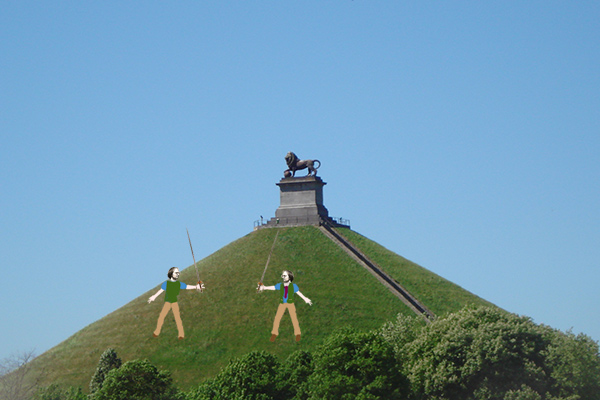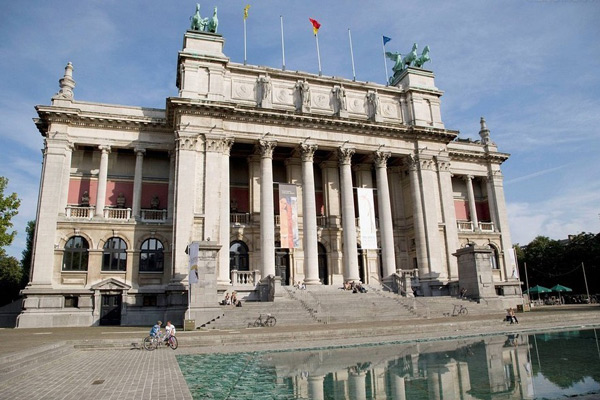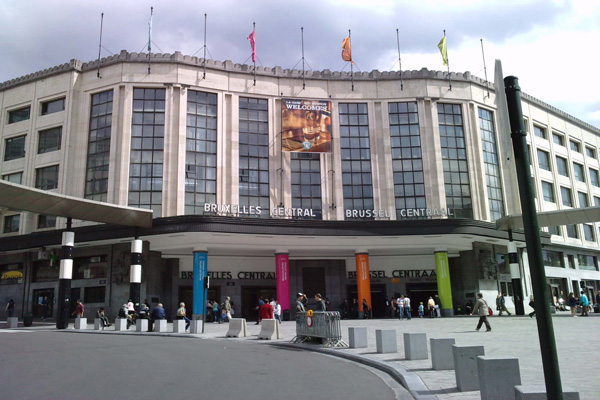Belgium seems to be the country where France and Germany, and anyone else who wants to go join in, can fight it out like dogs crapping in their neighbor's yard. Waterloo is a few miles south of Brussels with a big lion on a tall mound to remind everyone that this is an ideal spot to find out who's king of the heap. Ironically, although this region has sponsored most the great wars, being a quintessential playground for slaughter and death, Brussels has become the European capital of peace and union. Observing others' follies helps us avoid our own.
This was my second visit to Brussels, or is it Bruxelles, but this time I had nothing to do. So I stepped into their Royal Museums of Fine Arts to brush up on the Flemish artists who painted here in the 15th century. These artists were the first to develop the medium of oil painting: Jan van Eyck, Hans Memling, Hugo van der Goes, Robert Campin, Rogier van der Weyden, and later Pieter Brueghel the Elder, Anthony van Dyck, Jacob Jordaens, and Peter Paul Rubens. Their oil portraits eventually persuaded most all painters to switch from dissolvable tempera paints to the permanency of oil. Most importantly, oil paint allowed for the most subtle blending of facial tones till color photography came along 500 years later. Oil paints remained the preferred paint medium till acrylics came into play in the last half of the 20th century, however, for portrait painters, oils are still preferred. Acrylics cannot blend like oils.
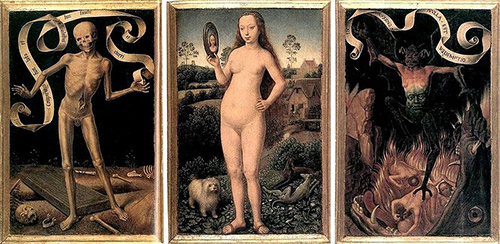  |
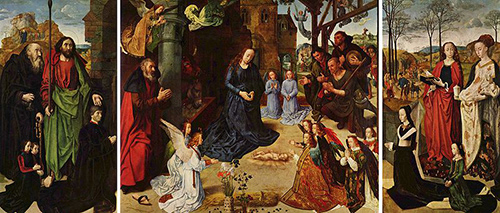  |
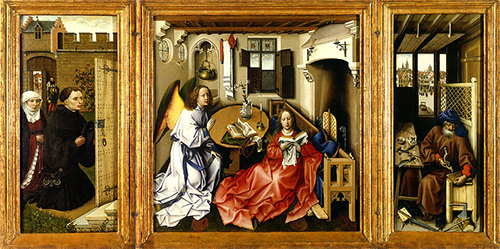  |
| Hans Memling | Hugo van der Goes | Robert Campin |
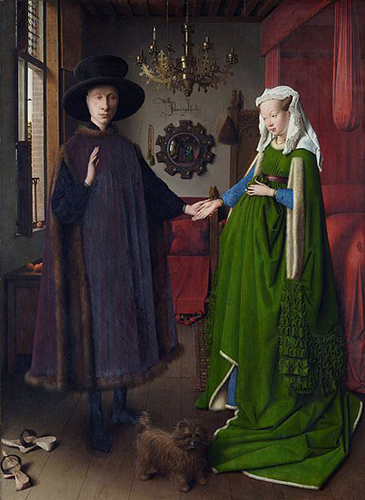  |
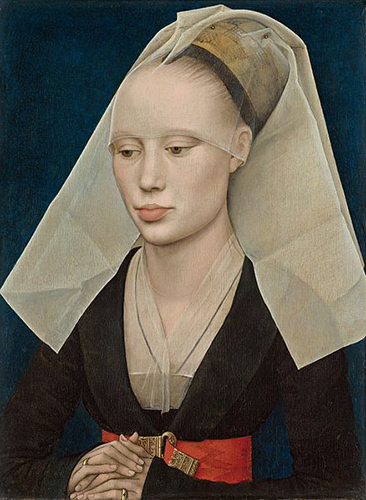  |
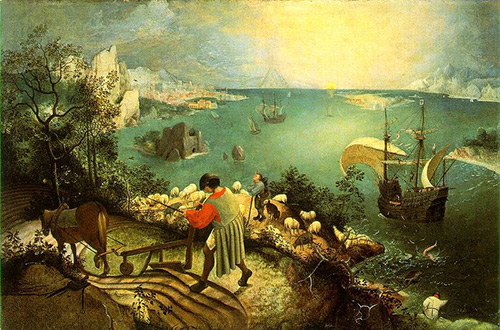  |
| Jan van Eyck | Rogier van der Weyden | Pieter Brueghel |
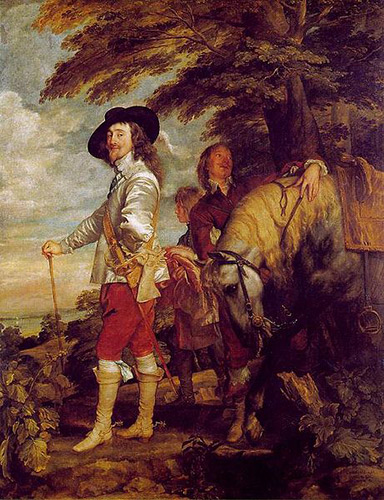  |
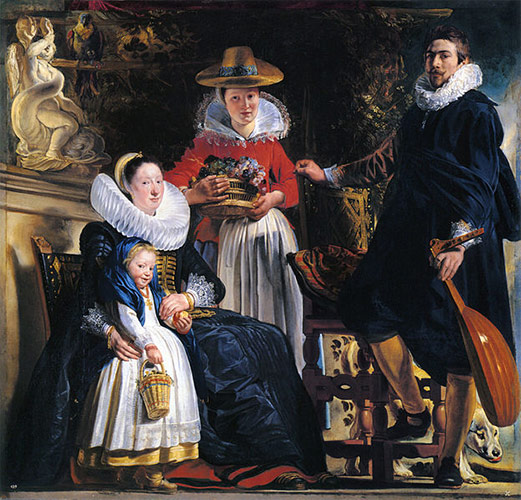  |
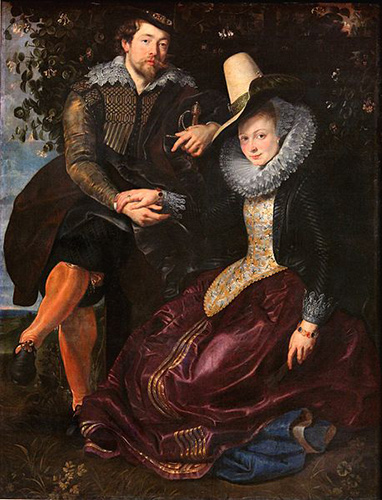  |
| Anthony van Dyck | Jacob Jordaens | Peter Paul Rubens |
Painting portraits is a tradition too engrained in our culture to allow the ease of photography to replace it. Nothing as easy as clicking your iPhone can be art, now could it? Conservatives who prefer uniqueness and hard work prefer oil portraits to digital prints. I prefer pixels and acrylics. Oils will crack under many layers — look at Rembrandt's, look at Van Gogh's — but you can build bumpy facial textures with acrylics not possible with oils. This means that, if the museum guards don't catch you, you can squeeze the zits on her nose.
Tonight, I probably slept in the train station waiting for a night train to Luxembourg if there were one.
